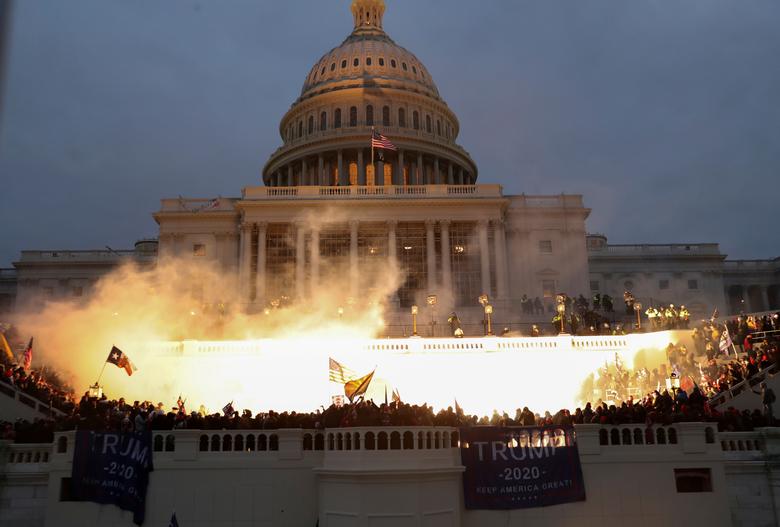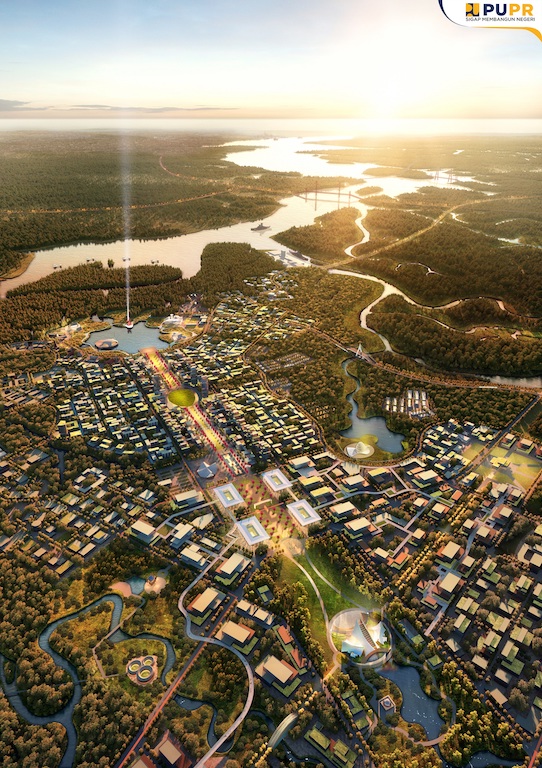Do network unions complement or compete with cities and states?
Reading about the concept of network unions reminds me of what we thought (in the 1990s) the internet would eventually become: a global commons for everyone to access and to better understand each other. In reality, it enables us to find our niche communities (online) to reinforce our already-held beliefs. A network union takes this one step further by enabling us to find (or create) our niche communities offline in addition to online.
The ties that have traditionally bound the United States (U.S.) have, in its history, eventually superseded tribes (religions, political affiliations, institutions, etc.) but as the U.S. (and the rest of the world) goes deeper into the 21st century, it’s clear that there is growing tension among and within the two major political parties that represent the American people. For some time, decorum seems to have no place in modern American politics as fringe elements have moved into the mainstream.
Could this period be an opportunity for a third major political party to emerge or will we see the first attempt at a national network union for refugees from the Republican Party along with disenfranchised members of the Democratic Party (along with their independent, centrist, libertarian, etc. allies)?

The events of January 6, 2021 at the U.S. Capitol were the result of not being able to square unobtainable political objectives (the reelection of the 45th president of the United States) with reality. That not everyone in the U.S. can agree on the same set of facts—and what to do about them—does not bode well for the future of the nation.¹ Only ideologues and zealots prioritize desired end-states over their own well being—or those of their off-spring. Sadly, it seems like their ranks are growing with each election cycle.
Who can truly participate in a network union?
There is an oft-repeated phrase that anyone could have become rich by buying Bitcoin at the right time. This is only partly true; anyone with an internet connection could have, yes, assuming s/he had enough solvency/liquidity and understood/believed in the power of Bitcoin. However, as of 2019, 47% of the world’s population is not connected to the internet. (Although in 2021 it’s probably more like 3.4 billion people without an internet connection.)
Cheap data rates and inexpensive smartphones are a partial solution to getting more people online and integrated into these new technological, financial, and social systems but in certain parts of the world merely having a smart phone makes one a target for theft or worse. And, it’s important to remember that access to the digital economy does not equal automatic digital literacy.
Thus, the network union described would seem to only apply to that same segment of the population that has already experienced the predecessors of Web 3, is technically savvy enough to navigate decentralized technologies, and imaginative enough to envision a future that departs from business as usual.
Therefore, I see two immediate use cases for the deployment of a network union:
- A new residential development with a Homeowner’s Association (HOA); and
- the relocation of a nation’s capital.
What are the ideal conditions for a network union to emerge?
Small-time politicking aside, the interests of the members of a HOA are generally aligned as long as the neighborhood in which they live serves as a primary residence. Homesteading, self-sufficient, resilient communities could be among the first to formalize network unions, share their master plans online, and attract like-minded people to join, build, and develop on top of foundations. I see this as a realistically attainable half-step towards a wholly new city or state via a network union. In other words, a proof of concept.
There would be other economic benefits of such a token, for example, bulk purchasing of goods and services such as firewood, windows replacements, seasonal supplies, etc. In a presentation below from 2017, I go into more detail about this concept (using school supplies as an example).
Network unions in HOAs could happen more quickly when one can obtain a mortgage (or borrow) using DeFi (e.g., Compound) or by buying into an existing HOA’s token, thereby offering a form of community financing as an alternative to traditional financing options. This method of opting-in is different from the next example, which is constructive and the more likely path to form network unions in the future.
Basically, when a city or state fails to provide necessary infrastructure and services, the appeal of a network union increases in proportion to the volume and quality of lacking services.
Right now, I’m writing this from Mexico where I’ve been riding out the pandemic. We rely on municipal-provided garbage pickup three times a week and, in theory, the police and fire departments for support during emergencies. It’s election season here so candidates are making the rounds at the local municipal level, some of which traditionally includes vote-buying. We compost and recycle plastic, aluminum, and cardboard outside of any public service (since it isn’t offered).
The cost of municipality-provided water is 800 pesos (USD ~$40) per year, unmetered. However, we have running water for less than half the year.² Yet, we also have a well on site and can grow some of the food we consume in three separate gardens along with two animal enclosures. So we are somewhat self-sufficient if we really had to be—or at least the basic infrastructure is in place to build upon.³
Today, in Mexico there are semi-autonomous zones and self-organized autodefensas (self-defense forces) so a network union wouldn’t be that much of a stretch in certain areas or regions of Mexico. What’s lacking is the economic means (smartphones) and digital literacy to mobilize and move the decision-making to within a network union since there are already various comités (committees) which administer potable water, ejidos, etc. decisions for the greater community. Privadas or fraccionamientos (similar to an HOA) could also serve as testing grounds for a network union.
A more unifying form of a network union could emerge with the relocation of a nation’s capital, as is currently the case in Indonesia. Relocations of a nation’s capital seldom occur in history. There are few recent examples of these changes, the most recent being Nay Pyi Taw in Myanmar (Burma) and the next being East Kalimantan (from Jakarta) in Indonesia.

Someday, the capital of Mexico may have to be moved, not because of rising sea levels but because the city was built on a lake and it’s sinking more each year. Imagine being a charter member of a new Mexican or the new Indonesian capital (of which citizen representation is denominated in a digital coin or token unique to the first inhabitants of a new city). Owners and users (tenants) sometimes have different orientations toward properties. But charter members of a city—via tokens—would have a sense of pride and ownership over a city in ways that regular and future inhabitants wouldn’t. More importantly, they’d also have more of an efficient say (ideally) in the types and frequency of services the network union could procure within the existing framework of a new capital (without potentially challenging the sovereignty of a state).
What’s next?
We are in the midst of many transitions and transitions are difficult periods. There will be more political, social, and economic upheaval ahead—some of which will result from the effects of climate change. Cities and states will struggle to meet the needs of their citizens and millions of people could migrate in attempts to preserve their livelihoods. So where might we see network unions form given the potential gaps and requirements above? Although China has the most smartphone users in the world, I don’t think we will see network unions emerge from there unless its formation is driven by the CCP or an affiliate. For the rest of North America (besides Mexico), we could see proposed network unions spring up in the U.S. and Canada in unorganized territories or areas or in places akin to the Disney World format if they are to be completely outside of existing government oversight at the local level. However, the perceived legitimacy of such network unions could clash with existing forms of government if network unions lead to self-determination in geographic areas or Brexit-style movements.
The point is that if a broken political system isn’t reformed from within, then solutions will be sought outside of the traditions that we’ve inherited as a nation of immigrants. E pluribus unum will be put to the test once again. In that case we may see more heirs become founders as we continue down this dead-locked track for the nation.
As we begin to emerge from the pandemic, some people want to go back to life as it was before the pandemic. Currently, Americans have very different ideas of where we are as a country and where we are headed. Today, it’s almost trite to say, “We’re Americans first”, because the actions and statements of many Americans don’t reflect that sentiment. For example, almost 600,000 of our fellow Americans have perished as a result of COVID-19—and those deaths were all completely preventable (by wearing a mask or through social distancing or by receiving a vaccine). In a future network union that comprises of significant numbers of Americans, the line might be updated to, “We’re token-holders first”.
The first network unions—and their reception—could be a litmus test for what awaits all of us later on in this century.
¹ This begs the question, what does the U.S. stand for in the 21st century?
² The water flows every other day but there have been two week-long stretches of no water so far this year. We have water storage tanks in order to have access to water year-round.
³ I could employ technologies such as aquaponics or hydroponics which would increase the growing yield, especially using vertical growing techniques.
